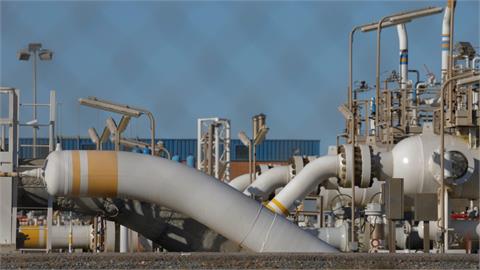Turkey's New Economy Program for the period 2019-2021, known as YEP, will focus on energy and petrochemicals as recipients of state incentives to decrease the current account deficit.
Treasury and Finance Minister Berat Albayrak unveiled the program on Thursday in Istanbul where he said the program is based on three fundamental factors -- balance, discipline and transformation. For the energy sector, the program will prioritize the increased share of renewable energy and local coal resources for power generation.
The localization of energy technologies will also be supported through the renewable energy resources zone (YEKA) model.
Last year, Albayrak, in his previous capacity as the Energy and Natural Sources Minister, presented Turkey's National Energy Strategy and vowed that Turkey would focus its diversification of energy sources on local resources. In line with this national energy strategy, Turkey opened solar and wind tenders, now as YEKA tenders, to maximize the use of local resources.
The New Economy Program stipulates that the costs of energy imports will be reduced with the help of the National Energy Efficiency Action Plan announced in April.
The National Energy Efficiency Action Plan targets $30.2 billion in savings by 2023, with the help of 55 actions to develop energy efficiency measures throughout various sectors in industry, transport, construction, agriculture, and energy generation and transformation.
The New Economy Program also states that Turkey's oil and natural gas exploration activities, particularly offshore, will be accelerated.
Turkey will also focus on mineral exploration and drilling activities, the plan noted, adding that these reserves will be utilized through new business models and financing mechanisms and with public-private partnership. These mineral reserves, particularly boron, will be transformed into high added-value products for international markets.
The plan also includes the creation of integrated petrochemical industry zones, specifically the Ceyhan Mega Petrochemical Industrial Zone in the south of Turkey.
The Ankara-headquartered Ronesans Holding, which engages in the construction, real estate development, and energy and health activities, has signed a framework cooperation agreement with the Netherlands-based Port of Rotterdam to develop the Ceyhan Mega Petrochemical Industrial Zone that will focus on petrochemical plants.
- Energy import bill to reach $46 billion in 2018
With the implementation of the plan, Turkey's energy import bill is forecast to reach $46 billion in 2018, compared to $37.2 billion in 2017. It is expected the bill will reach $43 billion in 2019, $44.3 billion in 2020 and $45.2 billion in 2021.
The calculation of Turkey's account deficit is based on the assumption of Brent oil averaging $72.80 per barrel in 2018, $73.20 per barrel in 2019, $69.70 per barrel in 2020 and $67 per barrel in 2021.
(Anadolu Agency)



